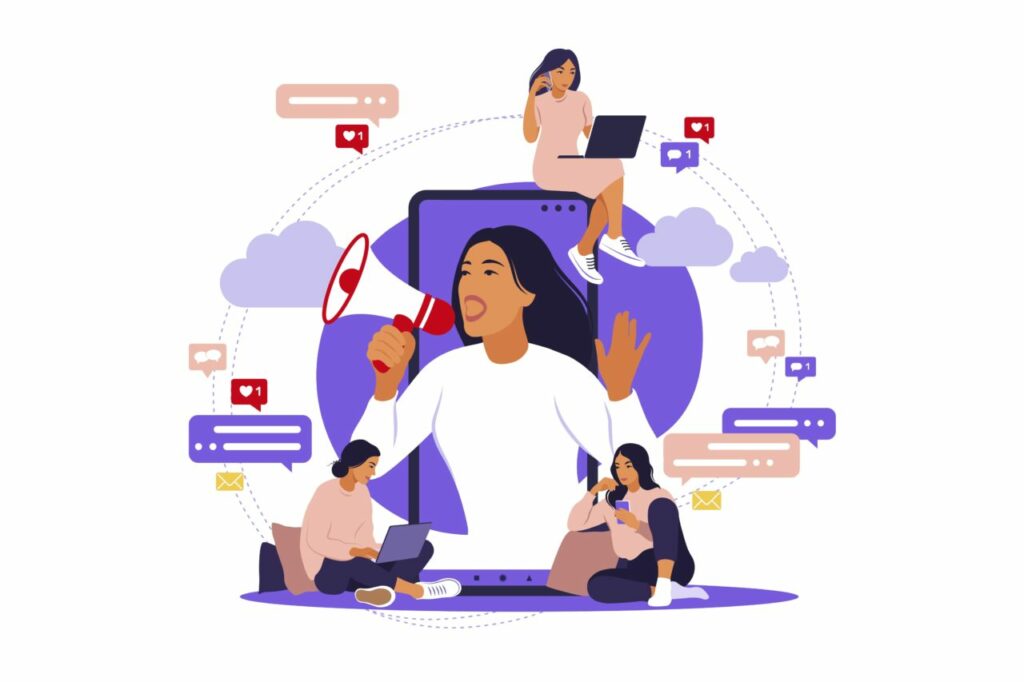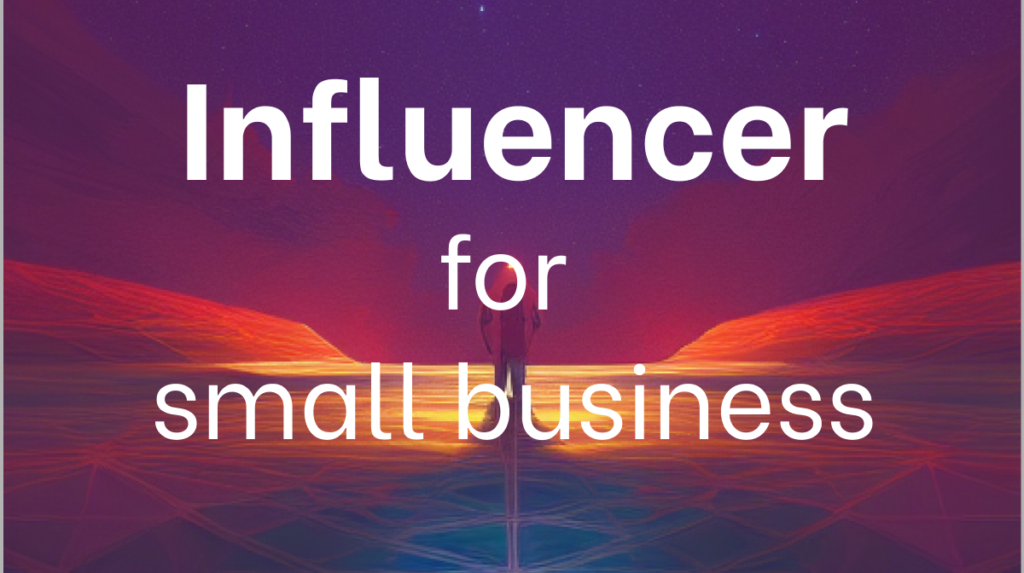Are you a small business looking to leverage the power of influencer marketing? Influencer Marketing for Small Businesses can help to increase your brand’s reach, engagement, and sales. As a small business, it can also be an affordable and effective way to compete with larger rivals.
However, it’s important to understand how influencer marketing works in order to get the most out of it. In this article, we will discuss what influencer marketing is, why it’s important for small businesses, and how you can use it effectively. We will also provide tips on finding the right influencers for your brand and working with them successfully.
With the help of this article, you will arm yourself with all of the knowledge necessary to unlock the power of influencer marketing for your small business.
What Is Influencer Marketing?

Looking to get your small business noticed on social media? Influencer marketing might be the answer you’re looking for. But just what is it?
Essentially, influencer marketing involves leveraging influential people—typically those with large social followings—to promote your brand. This differs from traditional marketing in that the influencers use their own voice and platform to reach consumers and readers in an authentic way. Of course, it isn’t as simple as swapping money for posts—it requires personal relationships and active engagement from both parties.
In addition to promoting products or services, influencers can also be used to increase visibility and website traffic, as well as tap into unique customer insights. Think about influencer content more as a form of storytelling than a pure sales pitch. It can also be used to showcase how a particular product may fit into someone’s everyday life, which is especially compelling for potential customers looking for tangible ways to use your products.
Benefits of Leveraging Influencers for Your Brand
Influencers can help boost brand visibility and trust like nothing else. By leveraging influencers, you’re able to tap into larger networks of potential customers while expanding your reach beyond your current circle of followers. For example, according to the media research company TapInfluence, 94% of marketers who have used influencer marketing found it to be effective when it comes to reaching an engaged audience.
Benefits of leveraging influencers for your small business include:
- Increase Brand Visibility: Working with an influencer enables you to reach a larger group of people than you would on your own. Influencers already have built-in audiences that trust them for advice and recommendations about what brands to purchase from. This allows you to tap into larger networks and get your product in front of more eyes.
- Boost Brand Trust: Consumers are more likely to trust an influencer’s opinion than one coming directly from a business or brand. When an influencer endorses your products, it helps build credibility and trust with potential customers who may have otherwise been hesitant about trying out your product or service.
- Grow Website Traffic & Conversion Rates: Collaborating with an influencer can drastically increase website traffic as well as conversions on products or services they promote. Influencers are experts in their field and people tend to view their opinions as trustworthy and valuable, making them more likely to purchase something they recommend without hesitation.
Identifying a Suitable Influencer for Your Brand

Finding the right influencer for your brand is essential to unlocking the power of influencer marketing.
When searching for the perfect influencer, consider these key factors:
- Reach and Engagement: Check their audience reach and engagement stats on social media platforms. This will give you an indication of how many people they’re able to reach and what kind of response their content usually gets.
- Authenticity: You want the influencer to be authentic in their support and endorsement of your brand so that their followers are more likely to trust that recommendation.
- Niche: Look for an influencer who is a good fit for your niche or industry in order to target the right people with relevant messaging.
- Cost: Consider your budget when selecting an influencer as there is usually a range of prices available depending on reach, follower count and engagement rates.
By focussing on these factors during the selection process, you can be sure that you are partnering with an influencer who will be a great fit for your small business and maximize the effectiveness of your campaign.
Crafting an Effective Influencer Agreement
An effective influencer agreement should be seen as more than just a contract; it is a business relationship. Every agreement should include the key elements of the arrangement, such as compensation, deliverables, and performance expectations. Additionally, agreements should include timelines of when certain obligations must be completed and obligate both the influencer and the business to deliver those obligations.
To make sure all involved parties adhere to their respective responsibilities, it is also important to include a clause that outlines potential breaches of contract and remedies for such breaches. This could include outlining penalties for failure to deliver on agreed obligations or for not meeting expected performance levels.
Finally, an effective influencer agreement should also provide specificity of what is deemed as “success” by the business when partnering with an influencer. This could be in terms of visits, engagement rates, or sales performance goals. By outlining these expectations up front in the agreement, businesses can effectively measure an influencer’s success after their campaign has been completed.
Measuring the ROI on Your Influencer Campaigns

Measuring the return on investment (ROI) from influencer marketing is essential for any small business. Without the proper metrics, your campaigns could easily become lost among the noise – and that’s money wasted.
Here are five key metrics to track when gaging your ROI:
- Reach: This metric measures how many people saw each post or campaign by an influencer; it includes fans, followers, and people who were exposed to the post through organic search or their social connections.
- Engagement: Measuring engagement by an influencer’s followers helps you determine whether or not they found your content interesting or relevant. Tracking engagement can be done using a variety of methods including likes, comments, shares and views.
- Clicks: Monitor the number of clicks your link receives in order to measure interest in your products or services among influencers’ followers.
- Sales/Conversions: This metric is one of the most important indicators of success—it measures how many followers made purchases from a campaign or post (if applicable).
- Brand Awareness/Sentiment: Analyze digital conversations about your brand to understand reactions from customers before, during and after a campaign to determine if sentiment is trending positively over time and if more people know about your brand than before it started working with influencers.
By measuring these metrics across various channels, small businesses can gain valuable insights into the success of their influencer marketing campaigns and plan appropriately for future campaigns to maximize ROI.
Scaling Your Influencer Marketing Efforts

Influencer marketing is a powerful tool for small businesses, but it can be a challenge to scale. Here are a few tips to help you make the most of your influencer marketing campaigns:
Choose Wisely
When selecting influencers for your campaign, make sure you take into account their target audience and their relevance to your product or service. Additionally, research each influencer’s engagement rate. If an influencer has low engagement, it may be more difficult to successfully engage their followers.
Set Goals
Before you launch your campaign, consider what success looks like to you. Try setting short-term and long-term goals that you want to achieve through your influencer outreach—this will give you something concrete to measure your progress against.
Monitor and Measure
It’s important to keep track of how successful your campaigns are so that you can course-correct if necessary. Look at metrics such as followers gained, likes and shares on posts, website visits through URLs shared by the influencers, and sales generated by the campaign. These metrics will tell you whether or not your efforts are paying off.
With these tips in mind, getting the most out of influencer marketing for small businesses isn’t an impossible endeavor — it just takes planning and consistency!
Conclusion
Influencer marketing is an effective way for small businesses to reach their target audiences and provide a platform for brand visibility and growth. With the right strategy and an understanding of the different influencer types, small businesses can create powerful partnerships that build authentic relationships and drive leads. To maximize the success of your influencer marketing campaigns, it’s important to engage with micro-influencers and brand ambassadors who have a passion for your business, create unique content to increase engagement, and monitor your progress to continually optimize your campaigns. By utilizing influencer marketing, small businesses have the potential to not only engage with customers and grow their brand, but also to unlock the power of digital marketing that can help take their business to the next level.

